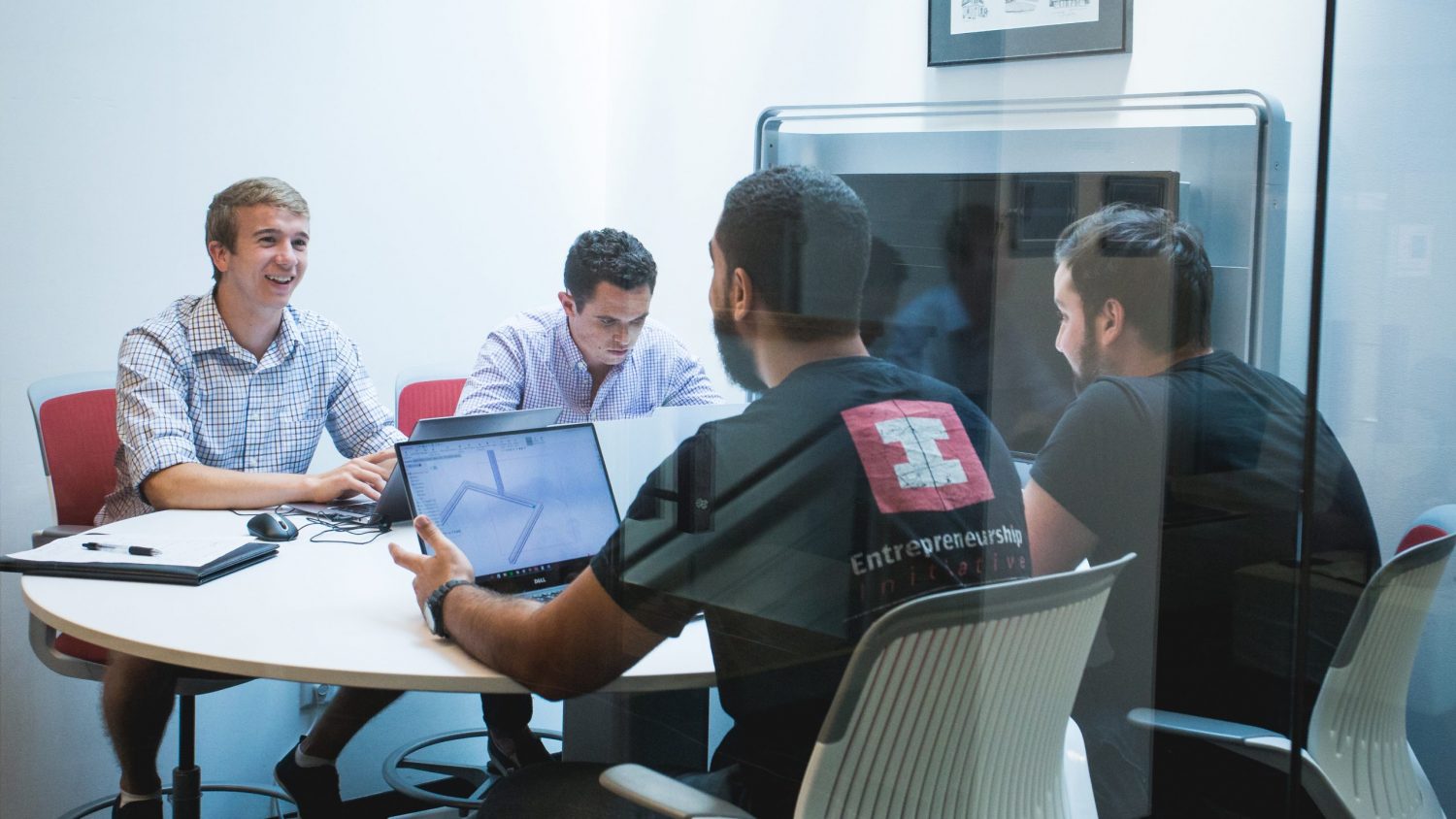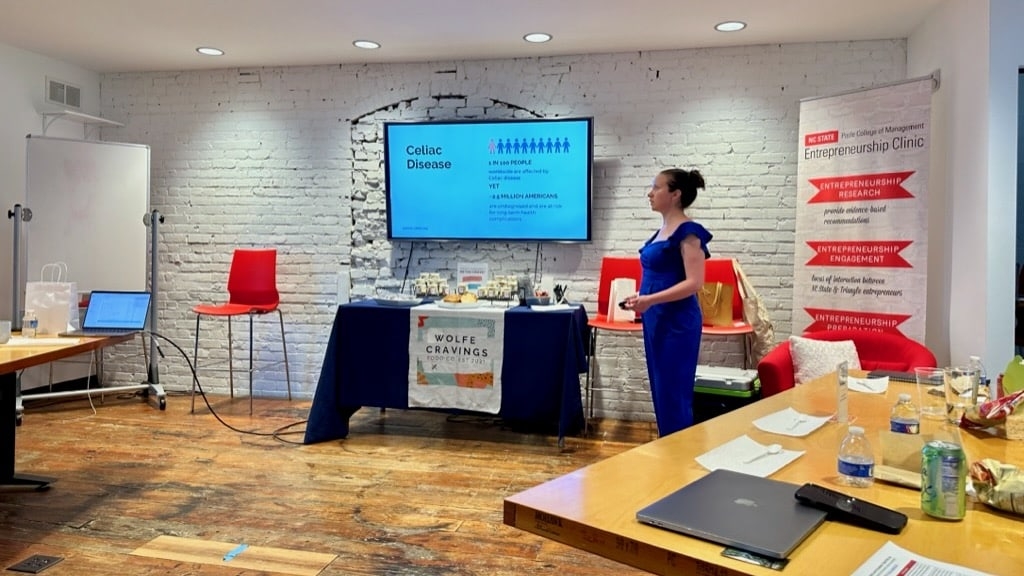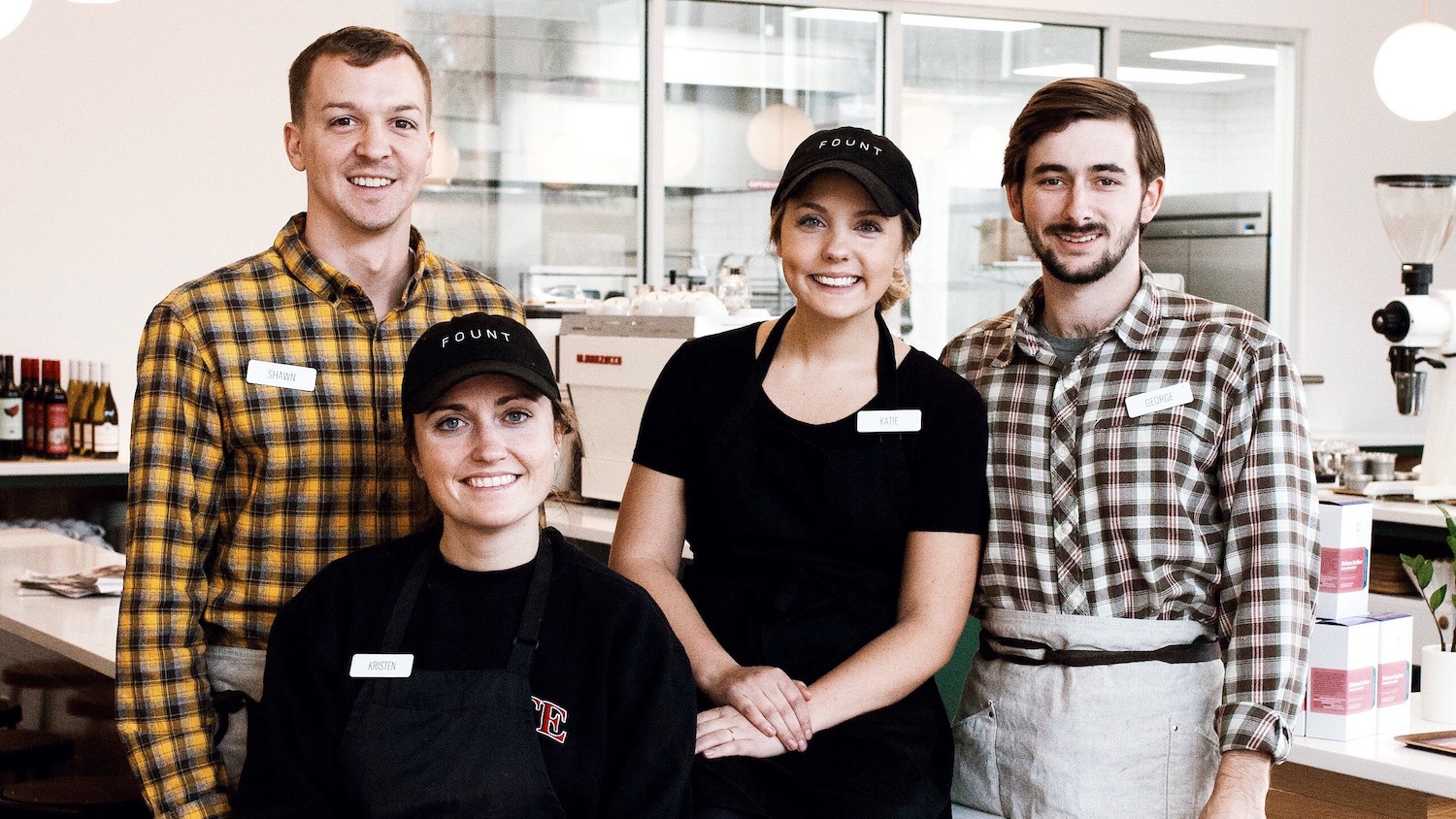The coronavirus pandemic continues to impact the global economy, causing growing uncertainty in the business landscape.
However, crises like COVID-19 often present people with an opportunity to create something completely new. Innovative ways to digitize services and connect with consumers may likely influence a large wave of business launches in the coming months. Yet, a surge in entrepreneurship, particularly in the midst of a crisis, is something we’ve experienced before.
“During times of major and sudden disruptions like COVID-19, we’ve historically seen that some established businesses aren’t able to adapt to new industry rules,” says Jon Carr, Jenkins Distinguished Professor of Entrepreneurship in the department of management, innovation and entrepreneurship at Poole College.
According to Carr, “As industries evolve, companies tend to adopt standard operating models that all look the same. Businesses will mimic what others are doing in an attempt to seem legitimate”.
“When crises like the coronavirus pandemic happen, this mimicking behavior gets blown away,” Carr adds. “Now, there’s a completely different playing field. New organizational approaches and engagement models are on the table to negotiate and pursue in a business startup.”
“After disruptions in the past, we’ve seen a huge launch of startup companies that were nimble enough to take advantage of new industry rules. And that’s exactly what we’re going to see happen again,” says Carr.
Faculty and staff within the Entrepreneurship Clinic mentor students on fundamentals that are critical to sustaining a business for the long-run. Skills like maintaining work-life balance, risk taking, and building professional relationships in an online environment are what students will gain in this year’s Accelerator program.
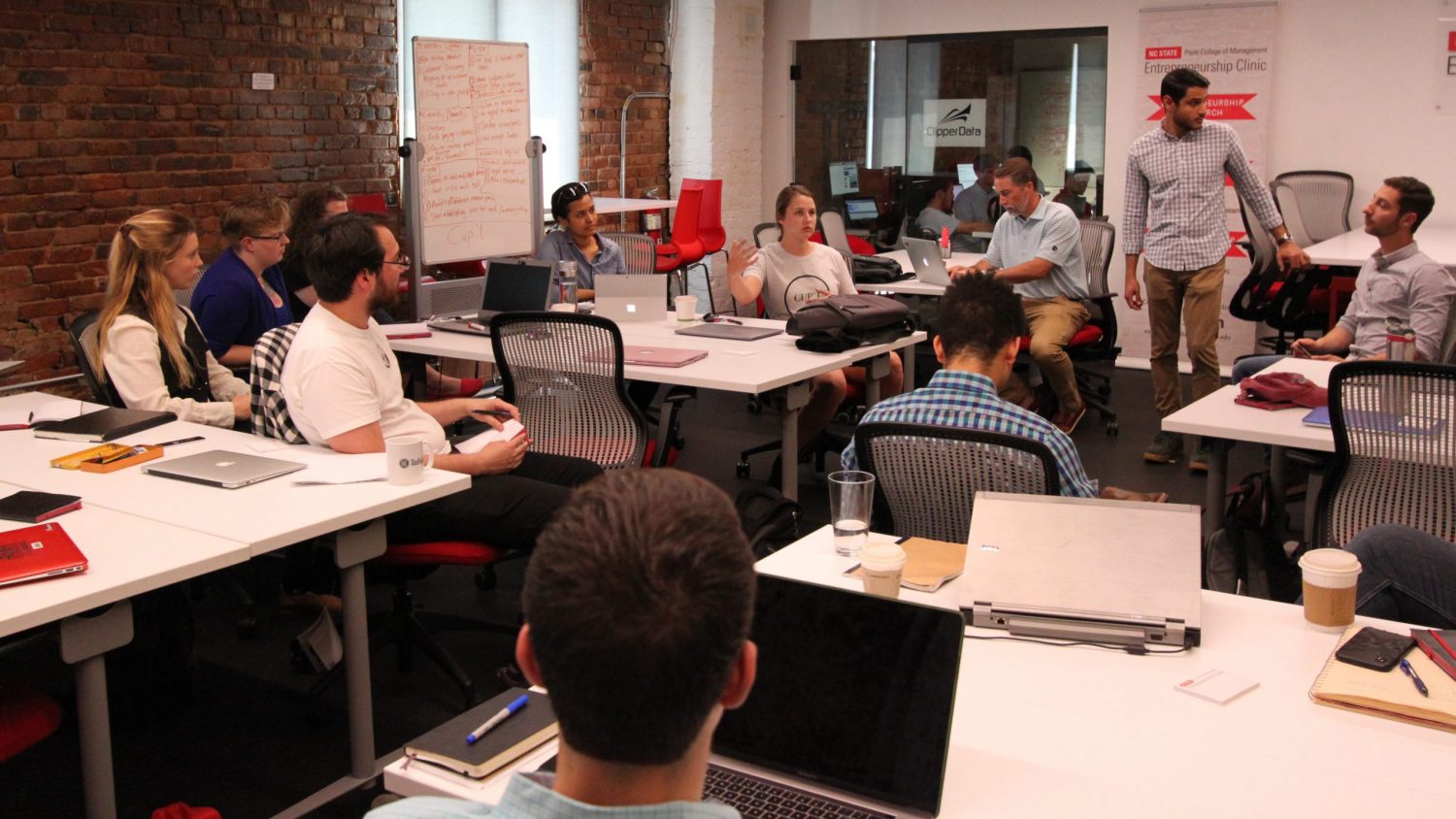
Through the NC State Acceleration Fund, the Entrepreneurship Clinic helps members of the Pack turn their visions into reality. The Andrews Launch Accelerator provides NC State business founders with equity-free seed capital, resources, and guidance to take their startups to the next level. Open to current students and recent alum, the deadline to apply is April 2.
“We’re looking to empower companies who are going to be a part of our new normal,” says Gabriel Gonzalez, Entrepreneurship Clinic program manager.
We’re looking to empower companies who are going to be a part of our new normal.
For a student or alum contemplating a business launch, Carr and Gonzalez encourage them to pursue it, because the opportunities for creativity and innovation are tremendous. “We’re encouraging our students to launch businesses that are attractive in this environment,” Gonzalez adds. “The companies we’re excited about supporting are those we think can adapt to changes that we see right now, but also changes that will remain.”
New businesses will no doubt face challenges in the days to come, and this is why according to Carr, the customer validation process is critically important. “If companies offer goods or services that the public needs, consumers will buy into it.” However, entrepreneurs must know how to solidly evaluate opportunities to determine if their startups can thrive in these uncertain times.
Discerning the long and short term viability of a business idea is what Gonzalez refers to as the “painkiller or vitamin” test, and it’s a skill set entrepreneurs need to build products and services that are expandable and can be leveraged going forward.
“When the impact of the coronavirus subsides, people will go back to eating at restaurants, but some things will be different,” Gonzalez says. “We’ll be more used to engaging over Zoom. We’ve had the technology to pursue educational learning for 20 years now, but with COVID-19, we’re essentially being forced to utilize it overnight. Many people may continue to use online tools to interact once this is over.”
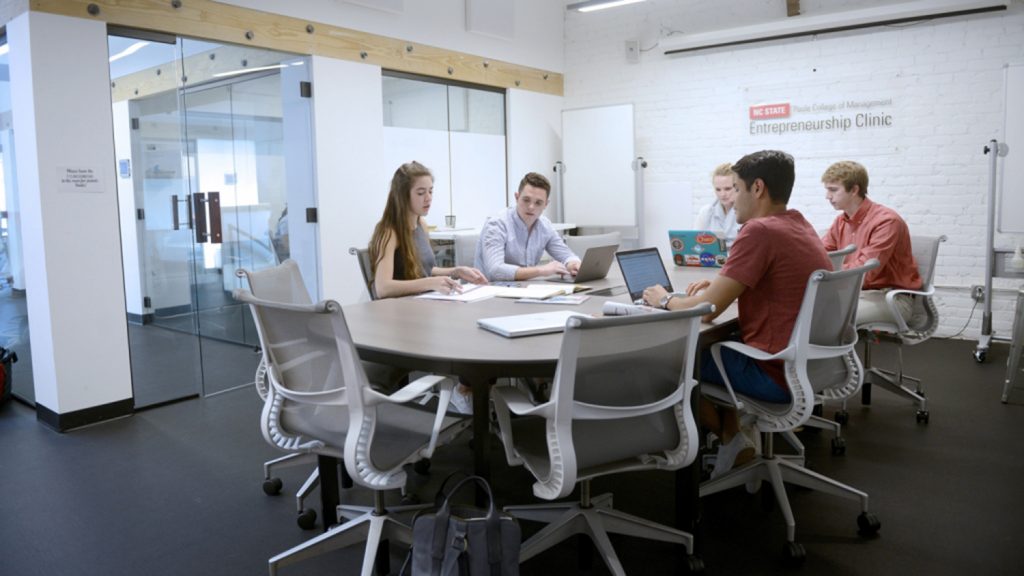
Carr and Gonzalez agree that keeping stride with shifts in the current business landscape will be helpful for startups, especially those with the ability to sell goods and services virtually. “In the Entrepreneurship Clinic, we’re helping students navigate the challenges of launching a business remotely,” says Gonzalez. “Some businesses will thrive in this environment, and some will not.” However, individuals who are able to recognize virtual business opportunities and maximize them in a meaningful way will have the potential for great success.
Carr adds, “After COVID-19 is behind us, we’ll likely see a substantial increase in startup activity, but our goal is to help students build scalable businesses that can generate long-term success, not just immediate growth over the next few months. Sustainable entrepreneurship isn’t about just chasing trends; it’s about finding a need and filling it in a scalable way.”
